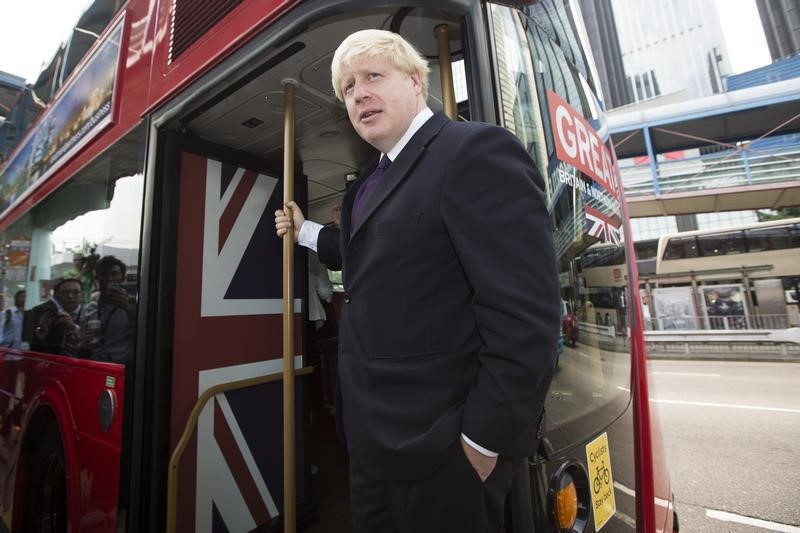By Geoffrey Smith
Investing.com -- European stocks found their feet again on Wednesday after the Federal Reserve signalled that it’s likely to remain on hold throughout next year, seemingly convinced that historically low jobless rates won’t create enough inflationary pressure to warrant a rate hike.
By 5 AM ET (1000 GMT), the benchmark Stoxx 600 was up 0.3% at 407.50, while the FTSE MIB was up 0.7% and the FTSE 100 was up 0.6%. Airlines and semiconductor stocks were among the biggest winners.
The biggest gainer on the continent was, however, Russia's RTS, where the heavily-weighted commodities companies all profited from the dollar’s post-Fed decline. A weaker dollar generally supports prices for commodities from oil to base metals and gold.
The FTSE’s gain was all the more notable, given that it came against the backdrop of sterling strength – GBP/USD was steady at above $1.32 in morning trade in London.
Traders appeared to be anticipating a Conservative majority at the general election, where final opinion polls suggested the Tories led by some 10 points nationwide. Given the U.K.’s electoral system, that may translate into anything from a large majority to a ‘hung’ parliament with no overall majority, but bookmakers see a 60% chance of a Tory majority, with spread bettors making markets implying they'll win 341 of the 650 seats up for grabs.
Polls close at 2200 GMT (5 PM ET).
Consensus opinion suggests that utilities stocks have the most to gain from a Conservative victory, as the threat of a Labour nationalization is lifted.
Domestic-themed consumer stocks are set to be supported whatever the outcome, if either of the main parties is true to their promises of big increases in government spending. Homebuilders in particular, may benefit as the lifting of some political uncertainty allows the housing market to revive.
However, given that even a big Conservative win won’t banish concerns over Brexit (the withdrawal from the EU will happen but huge questions over the U.K.’s trading relationship with the EU will remain), there is every chance that post-election euphoria will pass relatively soon.
Adjusted for currency effects, the U.K.’s FTSE 250 doesn’t have much underperformance vis-à-vis other European markets to make up. It’s risen some 20% this year in euro terms, compared to gains in the mid-20%s for most of Europe’s markets. The FTSE 100 has, however, lagged, due to the predominance of global commodity groups for whom the effects of the U.S.-China trade war have been more important.
